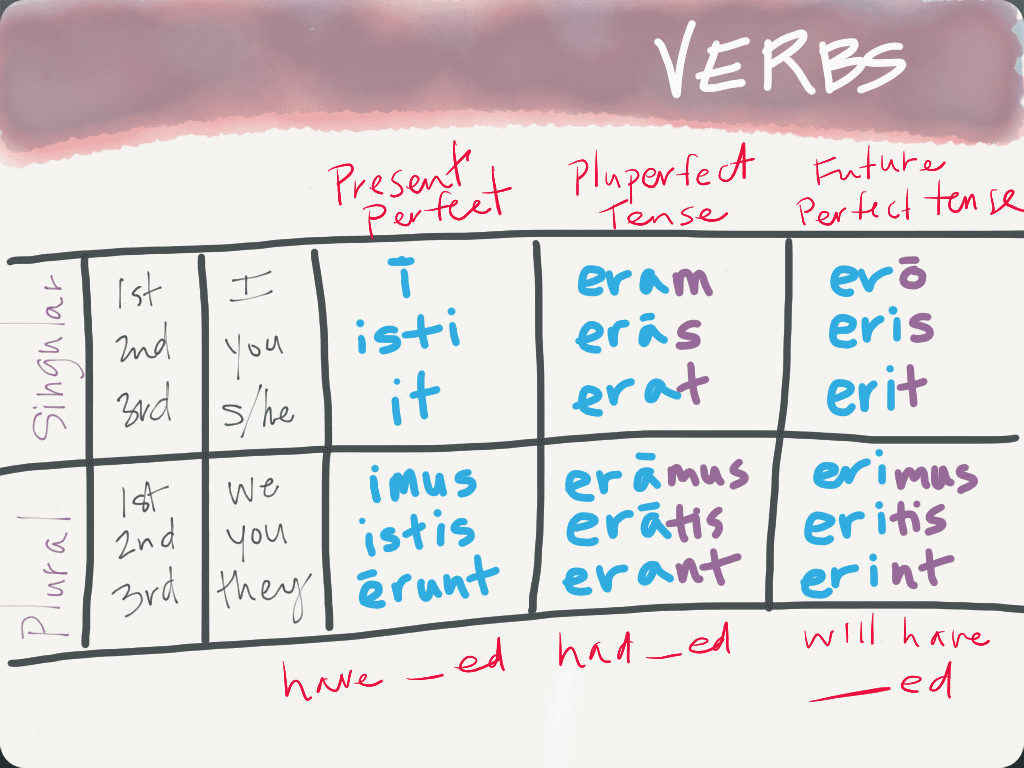Most other sources call this tense the pretérito anterior. Students progress at their own pace and you see a leaderboard and live results.

Using Patterns: Latin Verbs: Part 3: Tenses | Language Learning For Reading
This has been brought up in past threads.

Perfect vs pluperfect latin. · no one is perfect in this world. Action that is more than complete. As an adjective perfect is fitting its definition precisely.
Latin verb endings learn with flashcards, games, and more — for free. I am working through henle first year latin, and i am confused by when an exercise is translated as imperfect vs. In technical language, the first three tenses are known as the īnfectum tenses, while the three perfect tenses are known as perfectum.
As nouns the difference between perfect and prefect is that perfect is (grammar) the perfect tense, or a form in that tense while prefect is an official of ancient rome who controlled or superintended a particular command, charge, department, etc. And if the test fails, then the past simple means quite always perfect. Pluperfect is derived from the latin term.
The past perfect tense of english is similar to the pluperfect tense of latin. The present perfective (an action that was completed before the present, and affects the present) and the past aoristic (an action that takes place in the past, where the duration doesn't matter). · he is the perfect example of how a boss should be.
(the latin present tense is a kind of imperfect too, but a present one, that's why they are so similar and behave alike). (1) locī nātūra erat haec, quem locum nostrī castrīs dēlēgerant. The english past perfect tense
We get the sense of the pluperfect by translating a. Or (2) sometimes to denote an action in indefinite time, but prior to some past time referred to. It seems to me that the main verb should be.
The pluperfect and future perfect tenses the perfect tense epistolary tenses the pluperfect 477. For spoons, students need to collect the full set of cards for their verb. Print on cardstock and cut into cards.
In latin it was plusquamperfect (more than perfect). The key translates this as rōmānī servōs quī hostēs adjūverant semper occīdēbant. · the map is scaled to perfection.
For this reason, the perfect is translated as i have praised, i did praise, or simply i praised.to form the perfect active indicative, find the perfect stem (the 3rd principle part less the final i), and then add on the personal endings. Both function the same way even though they are known by these two different names. If you notice the conjugator erroneously calls the preterite of haber and the past participle the plu perfect.
Past perfect is the more systematic english term. It differs from the imperfect in that the imperfect relates ongoing, repeated, or continuous action. Share improve this answer answered dec 17, 2015 at 18:57 rogermue 8,410 2 21 24 add a comment
The two sets of tenses are made using different stems. The pluperfect (pluscuamperfecto) in spanish uses the imperfect of haber and the past participle of the verb. All conjugations pluperfect active latin verbs spoons game / uno game.
Perfect (adjective) means something that is flawless or complete. · this statement of purpose is perfect. However, english requires a compound verb phrase to express the past perfect tense whereas inflections indicate use of the latin’s pluperfect.
The perfect tense relates past, completed action. Latin has six main tenses: 2 i swim (every day) = pres.
The pluperfect is used (1) to denote an action or state completed in past time; It often happens in grammar terminology that we have two terms for the same thing. It contains all the necessary details.
The romans always killed slaves who had helped the enemy. · draw a perfect circle and show it to the class. 2 to my understanding, there is indeed a difference!
Has pluperfect active tense of all conjugations verbs. Learn vocabulary, terms, and more with flashcards, games, and other study tools.

